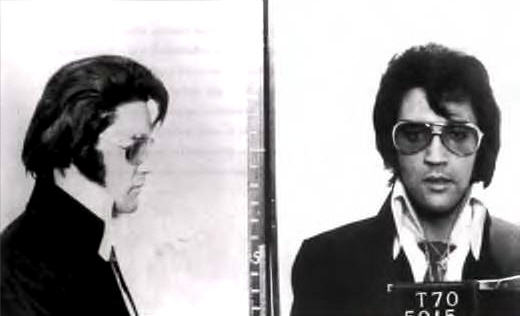Attorney J. Bradley Smith answering the question: “What is an expungement?”
A recent New York Times article delved into the issue of for-profit websites that exist to catalog the embarrassing mug shots of everyone from celebrities to Average Joes. The article set off a firestorm after it revealed some surprising information about how the websites operate, specifically with regard to their takedown procedures.
 A Bloomberg article discussed the fallout from the article, which profiled several people whose reputations were damaged by the mug shot websites holding onto their images years after they had officially paid their debts to society. The article noted how the sites scoop up thousands of mug shots every day and hold onto them seemingly forever, despite the fact that many of these people are ultimately found innocent or have their charges dropped. Even if a person’s criminal record is wiped clean, that has not stopped the mug shot aggregators from continuing to haunt a person’s online reputation for the foreseeable future.
A Bloomberg article discussed the fallout from the article, which profiled several people whose reputations were damaged by the mug shot websites holding onto their images years after they had officially paid their debts to society. The article noted how the sites scoop up thousands of mug shots every day and hold onto them seemingly forever, despite the fact that many of these people are ultimately found innocent or have their charges dropped. Even if a person’s criminal record is wiped clean, that has not stopped the mug shot aggregators from continuing to haunt a person’s online reputation for the foreseeable future.
The Bloomberg article notes that one issue that stirred up some of the most heated reaction was the way that the sites handle requests to remove a person’s mug shot. Apparently these takedown requests have little to do with a person’s innocence, and instead depend on how much money you are willing to pay. The sites will agree to remove your mug shot for a fee, with the amount ranging between $30 and $400 dollars.
Many people were outraged by what some argue amounts to extortion and some action has thankfully been taken against some of the sites. For one thing, an attorney in Ohio has launched a class-action suit against several mug shot sites, arguing that the sites violate state laws regarding privacy and extortion. Lawmakers in Georgia, Utah and Oregon have passed laws that mandate the sites remove pictures for free when a person is able to submit proof that they were found innocent of the charges or that their records have been expunged.
 Charlotte Criminal Lawyer Blog
Charlotte Criminal Lawyer Blog










 According to the aviation director at Charlotte Douglas, any vehicle that is dropped off at the airport’s curbside is subject to being searched. The airport admitted this is something it has been doing for the past year-and-a-half. The airport says that this is part of the facility’s security plan and has been approved of by the Transportation Security Administration (TSA). Airport officials admit that no signs are currently posted alerting passengers to the possibility that their cars may be searched, but say that are now planning on installing such signs.
According to the aviation director at Charlotte Douglas, any vehicle that is dropped off at the airport’s curbside is subject to being searched. The airport admitted this is something it has been doing for the past year-and-a-half. The airport says that this is part of the facility’s security plan and has been approved of by the Transportation Security Administration (TSA). Airport officials admit that no signs are currently posted alerting passengers to the possibility that their cars may be searched, but say that are now planning on installing such signs. After receiving repeated complaints, police say they launched an investigation into the matter and shortly thereafter spotted a man, Robert Morgan, picking up the woman in the parking lot of the church. Authorities say that 22-year-old Jessica Blackmon got into Morgan’s car and then drove to a convenience store and finally to a private residence in the area.
After receiving repeated complaints, police say they launched an investigation into the matter and shortly thereafter spotted a man, Robert Morgan, picking up the woman in the parking lot of the church. Authorities say that 22-year-old Jessica Blackmon got into Morgan’s car and then drove to a convenience store and finally to a private residence in the area. The arrest took place this past weekend when 29-year-old Danny Hemby was arrested by officers with the NCWRC. Officials say that they have filed eight criminal charges against Hemby, including two counts of selling a reptile on the federal endangered species list; two counts of owning and using venomous reptiles; possession of a reptile of special concern; sale of a reptile of special concern; unlawful possession of a reptile without a permit and finally, commercial taking certain reptiles.
The arrest took place this past weekend when 29-year-old Danny Hemby was arrested by officers with the NCWRC. Officials say that they have filed eight criminal charges against Hemby, including two counts of selling a reptile on the federal endangered species list; two counts of owning and using venomous reptiles; possession of a reptile of special concern; sale of a reptile of special concern; unlawful possession of a reptile without a permit and finally, commercial taking certain reptiles. According to authorities, Delcid-Almedare was arrested after fellow shoppers at a North Carolina flea market said they saw her lock her dog in the trunk of her car. One eyewitness said that he saw Delcid-Almedare walking her dog at the Barnyard Flea Market along Highway 51 near the state line when he then watched as the woman closed the dog in her vehicle’s trunk.
According to authorities, Delcid-Almedare was arrested after fellow shoppers at a North Carolina flea market said they saw her lock her dog in the trunk of her car. One eyewitness said that he saw Delcid-Almedare walking her dog at the Barnyard Flea Market along Highway 51 near the state line when he then watched as the woman closed the dog in her vehicle’s trunk. Police say that Pace forced his way in the museum through an exterior door. A fire alarm was then activated inside the Nature Research Center shortly after 3:30 in the morning. Security camera footage shows Pace, wearing a white jacket and dark clothing, using a nearby fire extinguisher to bust down the door to the museum.
Police say that Pace forced his way in the museum through an exterior door. A fire alarm was then activated inside the Nature Research Center shortly after 3:30 in the morning. Security camera footage shows Pace, wearing a white jacket and dark clothing, using a nearby fire extinguisher to bust down the door to the museum. Police say their crime unraveled when officers with a cybercrime unit in Fairfax County, Virginia noticed a video several weeks ago that had been posted online showing the two engaging in sex acts with several dogs. The couple is accused of making the video at home and then sharing it through a website devoted to such acts.
Police say their crime unraveled when officers with a cybercrime unit in Fairfax County, Virginia noticed a video several weeks ago that had been posted online showing the two engaging in sex acts with several dogs. The couple is accused of making the video at home and then sharing it through a website devoted to such acts. According to officials with the state, the law is clear that local sheriffs do not have the legal right to deny any Iowan the right to carry a gun based on a physical disability. The news has some blind gun owners rejoicing including one man, Michael Barber, who told reporters at an Iowa gun store that he was thrilled with the news. Barber said, “When you shoot a gun, you take it out and point and shoot, and I don’t necessarily think eyesight is necessary.”
According to officials with the state, the law is clear that local sheriffs do not have the legal right to deny any Iowan the right to carry a gun based on a physical disability. The news has some blind gun owners rejoicing including one man, Michael Barber, who told reporters at an Iowa gun store that he was thrilled with the news. Barber said, “When you shoot a gun, you take it out and point and shoot, and I don’t necessarily think eyesight is necessary.” The SBI says that its agents are focusing on doctors, nurses and pharmacists as well as other health care workers that might be involved in diverting prescription drugs from patients who desperately need the medicine. According to authorities, painkillers are the most often stolen drugs and the central focus for ongoing law enforcement efforts.
The SBI says that its agents are focusing on doctors, nurses and pharmacists as well as other health care workers that might be involved in diverting prescription drugs from patients who desperately need the medicine. According to authorities, painkillers are the most often stolen drugs and the central focus for ongoing law enforcement efforts. Police in Whiteville, NC say that received a call over the weekend about a domestic dispute in Mary Gowans’ home. When they arrived they found a chaotic scene with multiple people screaming. Police say that Gowans had forced her 15-year-old son to strip down to his underwear when she then attacked him with a belt, causing severe injuries and large lacerations across his body. Gowans then ordered her 12-year-old son to take over and continue beating the older boy due to his sexual orientation.
Police in Whiteville, NC say that received a call over the weekend about a domestic dispute in Mary Gowans’ home. When they arrived they found a chaotic scene with multiple people screaming. Police say that Gowans had forced her 15-year-old son to strip down to his underwear when she then attacked him with a belt, causing severe injuries and large lacerations across his body. Gowans then ordered her 12-year-old son to take over and continue beating the older boy due to his sexual orientation.